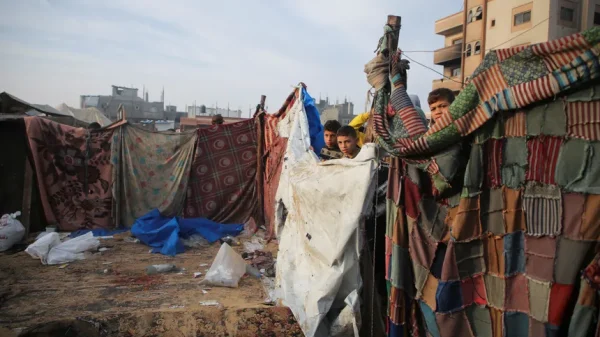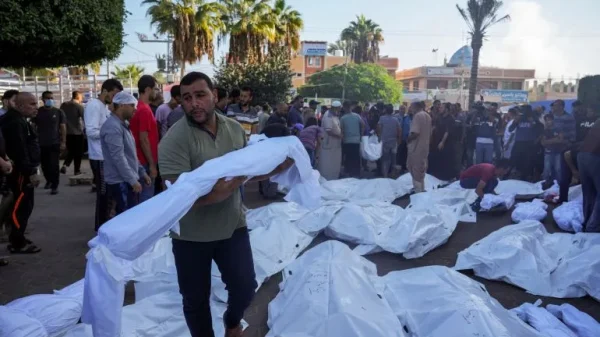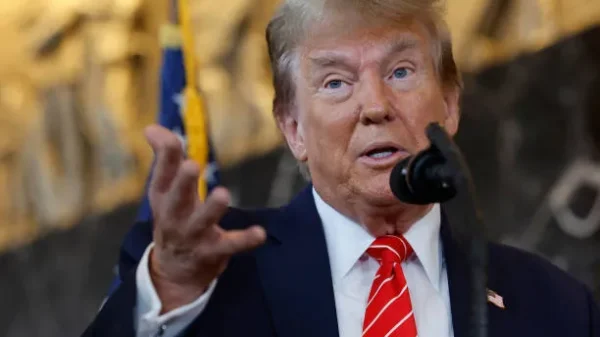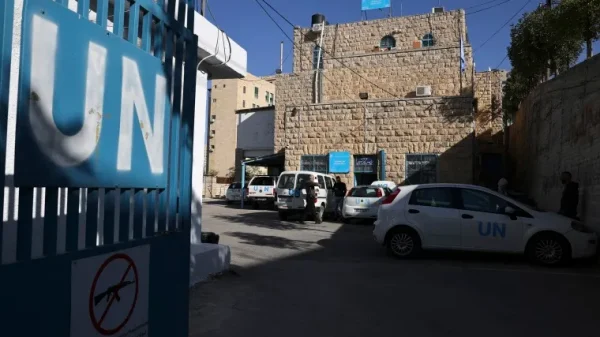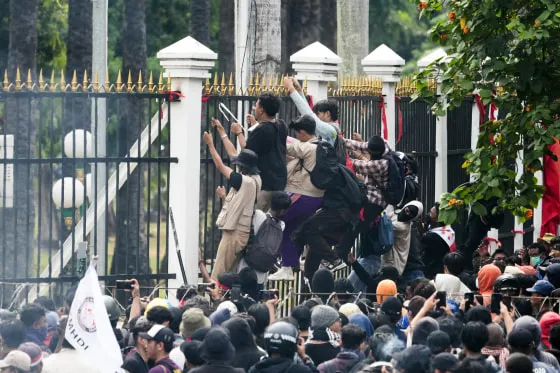Protesters in Indonesia’s capital city of Jakarta clashed with police on Wednesday, attempting to storm the country’s parliament in a show of opposition against changes to election laws that could further enhance the political influence of outgoing President Joko Widodo. Thousands of protesters, including activists, students, workers, and celebrities, occupied roads in front of the parliament building, holding banners and signs, and setting fire to tires and rubber plantation. The government had planned to ratify the changes, including raising the minimum age to serve as governor to 30 at the time of inauguration, and easing nomination requirements for political parties. However, the proposals have triggered widespread condemnation on local social media and raised concerns about a potential constitutional crisis.
Protesters were particularly angry about the Constitutional Court’s decision to dismiss a challenge to an age limit on regional governership candidates, which would prevent Mr Widodo’s 29-year-old son, Kaesang Pangarep, from running in a regional contest in Central Java. The parliament was forced to delay a vote on the changes after failing to achieve a quorum, due to the large number of protesters occupying the streets. Mr Widodo’s eldest son, Gibran Rakabuming Raka, is the incoming vice-president after the same court created an exception to the age limit for the post, which critics argue was unfair. Mr Widodo’s brother-in-law was previously serving as chief justice, and was later dismissed for participating in a case involving a close relative.
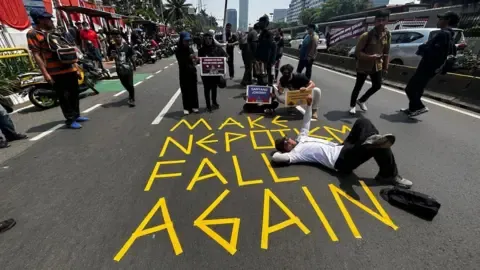
Protesters Clash with Police in Indonesian Political Crisis (Image via Getty)
The protests were not limited to Jakarta, with reports of demonstrations also taking place in other major cities, including Bandung, Yogyakarta, Surabaya, and Makassar. In Yogyakarta, over 1,000 protesters, including students and workers, rallied in front of the city’s parliament building, state palace, and ceremonial centre, demanding that the regional election bill be rejected, the Constitutional Court’s ruling be respected, and political dynasties be rejected. The crisis has raised concerns about democracy in Indonesia and the potential for political instability in the country. Mr Widodo, who is set to step down in 2024, is said to be keen to consolidate his political influence, but protesters are determined to stop him.
The situation is likely to continue to unfold in the coming days, as the government and protesters engage in a battle of wills over the future of Indonesia’s democracy. The protesters’ demands include rejecting the regional election bill, respecting the Constitutional Court’s ruling, and rejecting political dynasties. The government, however, remains committed to passing the changes, despite the widespread opposition. The clash between the government and protesters is a significant test for Indonesia’s democracy, and its outcome will have far-reaching consequences for the country’s political terrain.









